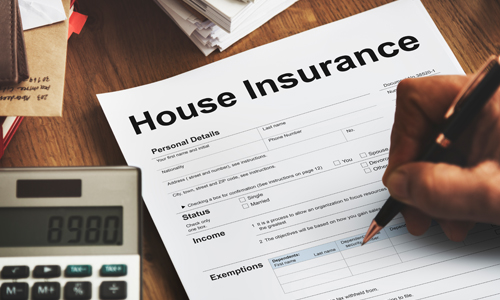Ejari vs Non-Ejari Rentals - Exploring Key Differences
The UAE attracts people from across the world for its excellent opportunities related to work, investment, lifestyle, and more. This boosts the growth of the real estate market, which often leads to challenges for renters and property owners. Thanks to the Ejari system in Dubai, regulated by the ...read more

- Instant Issuance
- Personalised Expert advice
- Guaranteed Low prices
Home Insurance starting at AED 33/day
However, during your search for a place to stay, you may come across rentals that are not registered under this system. This can lead to concerns regarding Ejari vs non-Ejari rentals.
It’s important to understand these concepts, especially when renting a property. To help you out, let’s dive deep and understand the key differences between Ejari and non-Ejari.
What are Ejari and Non-Ejari Rentals?
Ejari is a legal system in Dubai that protects the legal rights of both landlords and tenants. Whether you are renting a home or business place, it’s essential to register in the Ejari system. This system is established by the Real Estate Regulatory Agency (RERA), ensuring all the rental contracts are recorded on this system.
However, you can also find the non-Ejari rental system being used in Dubai's rental world. In this case, your rental agreement is not registered on the official platform. In plain terms, it means the agreement between a landlord and a tenant is not recognised by the government. This, in turn, means the legal rights of both parties are not safeguarded.
Implications of Non-Ejari Rentals
Although Ejari is mandatory in Dubai, many landlords or tenants still deal outside it. This usually happens due to a variety of reasons, such as the tenant preferring to conceal their credit history or the landlord wanting to save the Ejari registration fee or have arbitrary rent hikes.
But here’s the thing — choosing non-Ejari rentals can catch you off guard. In case of any disputes between landlords and tenants, no one will have legal protection. Furthermore, it can also be quite difficult to extend your visa without such registration.
| All You Need to Know About Ejari in Dubai |
Difference Between Ejari and Non-Ejari Rentals
Here’s an overview of the key differences between Ejari and Non-Ejari rentals -
| Factors | Ejari Rental | Non-Ejari Rental |
|---|---|---|
| Legal Protection | Both landlords and tenants are legally protected — any party can raise a complaint with the Rental Dispute Centres or the Courts | Landlords and tenants are not provided with legal rights — even the Court may not accept their unregistered rental agreement |
| Utility Services | Utility services such as water and electricity connections easily available from the Dubai Electricity and Water Authority (DEWA) | No such services usually available without proper registration. |
| Security Deposit | You may need to pay only one month’s rent | Security deposits may be demanded for several months as per the landlord |
| Requirements | Documents required such as tenant’s passport, visa, Emirates ID, and landlord’s tenancy licence | At the discretion of the landlord and the tenant |
| Cost | May cost more due to Ejari rental fees | Less expensive due to the lack of registration |
| Flexibility | Not flexible — the rental tenure cannot be changed | More flexible as rental terms can be changed anytime |
| Risks | No risks | High risks |
What to Consider When Choosing Ejari vs Non-Ejari Rentals
Let’s take a look at some things to consider while choosing a rental option —
- Rights and Safety: It’s important to be on the safe side when renting. With the Ejari system, you can get legal protection in case of any disputes related to rent hikes, eviction, and more. As this is not possible without proper registration, it is advisable to avoid non-Ejari rentals.
- Budget: While we consider the budget while renting, it’s worth remembering that going with Ejari is a good idea. While a nominal cost may be involved, it also brings peace of mind and proper agreement that safeguards your rights.
- Tenure of Stay: Ejari registration is usually not required for stays in Airbnb and similar properties. So if you’re in the country for a short span and staying in hotels, you won’t have to worry. However, if you want a proper rental place and plan to stay for a prolonged period, it’s better to do so properly, with all official registrations in place.
Ejari vs Non-Ejari Rentals– What to Choose?
The choice is quite straightforward — you should go with Ejari rentals!
In some cases, the involved parties may choose to avoid official registrations to cut costs or avoid regulation. However, even if it appears more feasible in the short term, it can bring major costs and hassles amidst any disputes. For instance, if you’re a tenant involved in a case of illegal eviction or rent hike, usually there won’t be any legal safeguard for the same.
So while it may appear that you enjoy more freedom with non-Ejari rentals in terms of rent negotiation or lack of terms, they can bring immense risks that might leave you vulnerable in terms of safety and finances. Thus, Ejari rentals are the best when it comes to security or fostering a relationship between landlords and tenants.
Important: While Ejari rentals are secure and provide routes to navigate past disputes, they won’t provide any coverage against damages due to natural disasters or liabilities. To keep your home financially protected — whether as a landlord or a tenant — you should get home insurance.
Frequently Asked Questions
Yes, Ejari registration is mandatory in Dubai for residential and commercial properties.
Yes, although the exact tenure may vary on a case-by-case basis.
If you don’t have an Ejari, you are deprived of legal rights and cannot approach the court in case of any disputes.
No, both landlords and tenants are required to register with the Ejari system.
While you may find certain properties in Dubai with non-Ejari rentals, it’s always advisable to go with properties that have proper Ejari registration in place.
More From Home Insurance
- Recent Articles
- Popular Articles

















